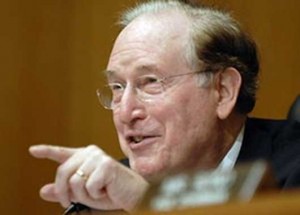David Strickland, the newly appointed Administrator of the National Highway Traffic Safety Administration, admitted today that of the 125 engineers working on auto safety, only five are electrical engineers, and one other is a software engineer.
This was a key question that had been ducked in the two Congressional hearings last week on the Toyota safety matters.
Strickland answered the question posed once again to Secretary of Transportation, Ray LaHood who was testifying at the U.S. Senate Committee on Commerce, Science and Transportation about NHTSA’s actions in Toyota unintended or uncontrolled acceleration deaths.
It was the first time that Strickland has answered a question in public about NHTSA , which is overseen by LaHood’s DOT, and it was the first time the real numbers emerged.
Since half a dozen seems a shockingly small number to oversee the safety of automotive electronics, an “allocation of resources ” debate at the huge federal agency is emerging among safety advocates.
Chairman John D. (Jay) Rockefeller IV opened the hearing with withering criticism of Toyota and NHTSA.
“Now, it is clear that somewhere along the way public safety took a back seat and corporate profits drove the company’s decisions,” Rockefeller said.
Critics, including Clarence Ditlow of the Center for Auto Safety, have been pointing out how easy it is for automakers to manipulate an understaffed NHTSA on recalls and service actions to improve profitability.
Critics also contend, with increasing evidence from recalls supporting the charges, that the auto industry is far behind in the use of safe design practices governing the use of electronics and electronic control circuits that are in common use in other industries.
This will be examined in greater detail when Toyota executives testify later this afternoon.
Rockefeller then turned to NHTSA’s role in the, alleged, 52 fatalities and 38 injuries at Toyota from unintended acceleration matters.
“It is also apparent that the government – NHTSA – didn’t fulfill its responsibility in the past and has more to do in the present – and needs greater resources and authority in the future,” Rockefeller said.
“NHTSA’s actions – and inactions – in the years leading up to today are deeply troubling. The American people count on NHTSA to protect them and to provide them with clear and reliable safety information – and even today that picture is not clear.”
And what’s more – the American people do not yet clearly understand how this happened and how it will be solved; which defects have been addressed and what dangers remain; and what the recalls are fixing and what they are not,” Rockefeller said.

